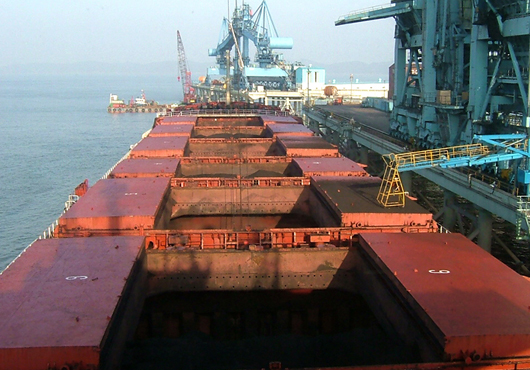China will continue to have a positive impact on metals demand and prices despite current slowing economic growth and concerns over its property sector which could result in structural changes, speakers at the London Metal Exchange (LME) seminar said Oct. 11.
China's moves to decarbonize, with a 2060 net-zero carbon emissions target, along with decarbonization worldwide, will be particularly metals-intensive, delegates heard at the seminar.
China's role in the future direction of the metals markets cannot be underestimated, said Nicolas Aguzin, chief executive of Hong Kong Exchanges and Clearing (HKEX), owner of the LME since 2012. China is expected to continue to take around 45-57% of global consumption in base metals and continue to be the world's biggest refiner of metals, accounting between 35% and 55% of total global production, said Aguzin at the opening of the event, which was held in-person for the first time in two years.
“The continuing growth and opening up of China is unprecedented… it will become the biggest economy,” Aguzin told delegates at the seminar. “This is where the action is.”
HKEX's establishment of warehouses in the region and taking of a minority participation in an onshore Chinese exchange will help tap into this strength, particularly in light of China's aggressive decarbonization strategy, Aguzin said.
China's ‘huge recovery’
China's “huge recovery” from the COVID-19 market slump, backed by massive stimulus, means that the Asian giant's GDP growth trend is now above its pre-virus trend level, with exports of some goods 40% above pre-COVID-19 levels, as other advanced economies also move towards a good recovery, Neil Shearing, chief economist at Capital Economics, told the meeting.
The US' GDP in Q3 is expected to be above pre-virus levels, and there has been a “rapid rebound” in mobility in Germany, the US and the UK in recent weeks, despite some shortages of energy, fuel, goods and labor which may be inter-related and last for 6-12 months, he added.
Although the pace of property development in China has been “unsustainable”, as evidenced in the difficulties now facing major constructor Evergrande, and a structural slowdown is looming, 3-4% economic growth can be judged to be sustainable, Shearing said. And while global and regional economic growth rates may slow in 2022 from 2021, there isn't likely to be a slowdown in consumption due to an accumulation of savings during lockdown and due to stimulus funds, he said.
“It's not the same as the global financial crisis,” Shearing said, “the global economy will stage a full recovery from COVID but we're entering the hard part.”
Xiao Amelia Fu, head of commodity strategy at Bank of China International, said that while demand for base metals might be slower than it had been due to a slowdown in the Chinese construction sector, they would still be needed to complete unfinished construction projects already in progress. China is likely to see a shift from infrastructure to manufacturing and services to help stabilize the economy, she said.
Nick Snowdon, head of industrial metals research at Goldman Sachs, claimed that the metals sector is “in the first innings of a supercycle… due to structural underinvestment in supply.”
“COVID has acted as a catalyst to force governments to act on social inequalities, generating a stronger demand environment for commodities,” Snowdon said.
Five-year plan
Looking at China's five-year plan, widespread prosperity would be good for demand and decarbonization would be very good for base metals demand, as it would accelerate investment in alternative energy, Snowdon added. “China's share of wind and solar will expand rapidly,” he said.
Fu said the share of EVs in new passenger vehicle sales in China was expected to reach up to 80% of total vehicle sales by 2040 — up from a planned 25% share in 2025 — which meant demand for copper was forecast to be five times higher than in 2022.
She added that China was leading in terms of battery technology and development, due to more developed supply chains, and that this would drive demand for nickel, lithium and cobalt as well.
Fu said that all battery metals prices were strong, but lithium especially, because of tightness in supply and high demand, with the current power restrictions in China not really affecting the EV and battery industries. These weren't so impacted by COVID-19 either, she added.
Snowdon said he expected an environment of tight markets, falling inventories and significant upside pressures on prices to remain, while Fu said she expected to see base metals move slightly lower, but remain underpinned by strong supply-demand fundamentals.
Source: Platts
The opinions expressed herein are the author's and not necessarily those of The Xinde Marine News.
Please Contact Us at:
media@xindemarine.com


 Ningbo Containerized Freight Index Weekly Commentar
Ningbo Containerized Freight Index Weekly Commentar  Ningbo Containerized Freight Index Weekly Commentar
Ningbo Containerized Freight Index Weekly Commentar  Ningbo Containerized Freight Index Weekly Commentar
Ningbo Containerized Freight Index Weekly Commentar  BIMCO Shipping Number of the Week: Bulker newbuildi
BIMCO Shipping Number of the Week: Bulker newbuildi  Ningbo Containerized Freight Index Weekly Commentar
Ningbo Containerized Freight Index Weekly Commentar  Ningbo Containerized Freight Index Weekly Commentar
Ningbo Containerized Freight Index Weekly Commentar